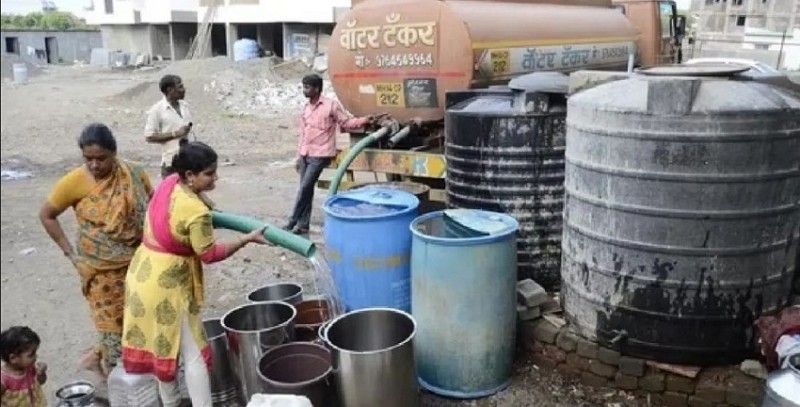
Starting today, the Bangalore Water Supply and Sewerage Board (BWSSB) will kick off its recycled water supply scheme for construction purposes. The initiative aims to reduce reliance on borewells in the area. BWSSB has collaborated with the Confederation of Real Estate Developers' Association of India (CREDAI) and the Bangalore Apartments Federation (BAF) to bring this project to life.
BWSSB officials have revealed that developers have already placed orders for 62 lakh liters of recycled water, with expectations of increased demand in the future. This move not only provides a new revenue stream for BWSSB but also comes with third-party certification from the Indian Institute of Science (IISc). Additionally, BWSSB has permitted apartment complexes to sell 50% of their recycled water. Plans are also in place to install separate pipelines for delivering treated water to construction sites within a 500-meter radius of sewage treatment plants.
In Bengaluru, some apartment complexes are already selling excess treated water at rates ranging from Rs 100 to Rs 125 per tanker, as reported by TOI. However, the availability of tankers for transporting treated water is limited due to most being utilized for delivering drinking water. Moreover, tankers used for transporting treated water cannot be repurposed for delivering potable water to prevent contamination. BWSSB has initiated discussions with the Bangalore Apartments Federation to address this challenge.
Rajagopalan R, chairperson of the South City maintenance community on Bannerghatta Road, stated that their complex is selling treated water at Rs 125 per tanker, provided customers arrange their own transportation. He mentioned that out of the 9 lakh liters of water treated daily, 5 lakh liters are used internally, while the surplus is sold to interested parties.
Shortage of Tankers for Transporting Treated Water Raises Concerns
Satish Mallya, vice-president of BAF, highlighted the difficulties faced by many apartment associations in acquiring tankers for transporting treated water out of their complexes. He attributed the shortage of tankers to their allocation for drinking water supply and stressed the importance of clearly marking tankers carrying treated water to prevent confusion.
IMD Issues Heat Wave Warning
The India Meteorological Department (IMD) issued a heat wave warning on Monday, stating that India is set to experience intense heat from April to June, particularly affecting central and western regions. This period coincides with the upcoming seven-phase general elections starting April 19. Mrutyunjay Mohapatra, Director General of IMD, cautioned about the increased vulnerability to heatwaves during the 2024 general elections due to heightened outdoor activities.
Mohapatra noted that above-normal maximum temperatures are expected across most of India during April-June, with significant heatwave days anticipated, particularly in Gujarat, Maharashtra, and north Karnataka.
While El Nino conditions are weakening, they are expected to persist through April and May, contributing to above-normal temperatures. La Nina conditions, anticipated later in the monsoon season, may help alleviate this heat. However, above-normal temperatures in April pose health risks, especially for vulnerable populations. The IMD predicts normal to above-normal rainfall in April, primarily in the northwest and parts of central and north peninsular India, with below-normal rainfall in coastal areas. These weather conditions coincide with the Lok Sabha polls, posing challenges for voters and election staff alike.